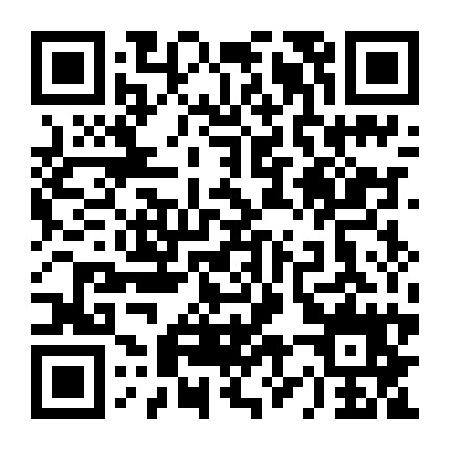医学博士英语统一考试之后,即将迎来各院校的考博英语初试,英语考试的备考,参考历年真题是一个很重要的备考过程,今天新东方在线小编给大家整理了电子科技大学2018年考博英语真题,帮助大家更好的备考,考博英语考试,一起来看看吧!
The nuclear age in which the human race is living, and may soon be dying, began for the general public with the dropping of an atom bomb on Hiroshima on 6 August 1945. But for nuclear scientists and for certain American authorities, it had been known for some time that such a weapon was possible. Work towards making it had been begun by the United States, Canada and Britain very soon after the beginning of the Second World War. The existence of possibly explosive forces in the nuclei of atoms had been known ever since the structure of atoms was discovered by Rutherford.
An atom consists of a tiny core called the “nucleus” with attendant electrons circling round it. The hydrogen atom, which is the simplest and lightest, has only one electron. Heavier atoms have more and more as they go up the scale. The first discovery that had to do with what goes on in nuclei was radioactivity, which is caused by particles being shot out of the nucleus. It was known that a great deal of energy is locked up in the nucleus, but, until just before the outbreak of the Second World War, there was no way of releasing this energy in any large quantity. A revolutionary discovery was that, in certain circumstances, mass can be transformed into energy in accordance with Einstein’s formula which states that the energy generated is equal to the mass lost multiplied by the square of the velocity of light. The A-bomb, however, used a different process, depending upon radioactivity. In this process, called “fission”,a heavier atom splits into two lighter atoms. In general, in radioactive substances this fission proceeds at a constant rate which is slow where substances occurring in nature are concerned. But there is one form of uranium called “U235” which, when it is pure, sets up a chain reaction which spreads like fire, though with enormously greater rapidity. It is this substance which was used in making the atom bomb.
The political background of the atomic scientists’ work was the determination to defeat the Nazis. It was held—I think rightly■—that a Nazi victory would be an appalling disaster. It was also held, in Western countries, that German scientists must be well advanced towards making an A-bomb, and that if they succeeded before the West did they would probably win the war. When the war was over, it was discovered, to the complete astonishment of both American and British scientists, that the Germans were nowhere near success, and as everybody knows, the Germans were defeated before any nuclear weapons had been made. But I do not think that nuclear scientists of the West can be blamed for thinking the work urgent and necessary. Even Einstein favored it.
When, however, the German war was finished, the great majority of those scientists who had collaborated towards making the A-bomb considered that it should not be used against the Japanese, who were already on the verge of defeat and, in any case, did not constitute such a menace to the world as Hitler. Many of them made urgent representations to the American Government advocating that, instead of using the bomb as a weapon of war, they should after a public announcement, explode it in a desert, and that future control of nuclear energy should be placed in the hands of an international authority.
Seven of the most eminent of nuclear scientists drew up what is known as “The Franck Report” which they presented to the Secretary of War in June 1945. This is a very admirable and far-seeing document, and if it had won the assent of the politicians, none of our subsequent terrors would have arisen.
57. We may infer that the writer’s attitude towards the A-bomb is that .
A. it is a necessary evil
B. it is a terrible threat to the whole of mankind
C. it played a vital part in defeating the Japanese
D. it was a wonderful invention
58. The American and British scientists were astonished at the end of the Second World War against Germany because .
A. the Germans had been defeated without the use of nuclear weapons
B. the Western countries had won before they had invented nuclear weapons
C. they thought the Germans would probably win the war
D. the Germans had made little progress in developing nuclear weapons
59. According to the writer, most scientists who had helped in making the A-bomb considered that it should not be used against the Japanese because .
A. it was such a dangerous weapon
B. its use against the Japanese was unnecessary
C. it was a very inhumane weapon
D. the German war was finished
60. It is implied that the nuclear scientists .
A. might not have agreed to develop the bomb if there had been no Nazi threat
B. would have developed the bomb even without the Nazi threat
C. would have made the bomb, under peace-time conditions, but only for the use of an international authority
D. developed the bomb because Einstein thought it urgent and necessary
考博必备!历年真题及答案
考博精品好课,就选新东方!

 资料下载
资料下载
【必看】考博英语词汇10000例精解
发布时间:2020-09-02关注新东方在线服务号
回复【10000】免费获取
医学考博英语作文核心基础词汇整理
发布时间:2020-04-15关注新东方在线服务号
回复【医学考博】获取
医学考博英语阅读理解练习资料
发布时间:2020-04-15关注新东方在线服务号
回复【医学考博】获取
法学考博英语高频词汇word版
发布时间:2020-04-15关注新东方在线服务号
回复【医学考博】获取
医学博士英语统考真题及解析
发布时间:2019-12-26关注新东方在线服务号
回复【考博真题】获取
全国医学博士外语统一考试真题
发布时间:2019-12-26关注新东方在线服务号
回复【考博真题】获取
中科院考博英语复习备考实战经验分享
发布时间:2019-12-26关注新东方在线服务号
回复【考博经验】获取
中科院考博英语真题练习资料
发布时间:2019-12-26关注新东方在线服务号
回复【考博真题】获取

关注新东方在线服务号
关注新东方在线服务号,
免费获取考博必看干货资料

 推荐阅读
推荐阅读
沈阳工业大学2022年博士研究生招生考试英语真题B卷
来源 : 沈阳工业大学 2022-12-26 16:19:18 关键字 : 沈阳工业大学2022博士英语真题
沈阳工业大学2022年博士研究生招生考试英语真题A卷
来源 : 沈阳工业大学 2022-12-26 16:18:19 关键字 : 沈阳工业大学2022博士英语真题
沈阳工业大学2021年博士研究生招生考试英语真题B卷
来源 : 沈阳工业大学 2022-12-26 16:09:06 关键字 : 沈阳工业大学2021博士英语真题
沈阳工业大学2021年博士研究生招生考试英语真题试卷A卷
来源 : 沈阳工业大学 2022-12-26 16:07:31 关键字 : 沈阳工业大学2021博士英语真题
沈阳工业大学2020年博士研究生招生考试英语真题试卷
来源 : 沈阳工业大学 2022-12-26 16:04:42 关键字 : 沈阳工业大学2020年博士英语真题


 考博好课推荐
考博好课推荐
基础薄弱,备考迷茫,送纸质资料
价格 : ¥2280元
资深教师,教学简明,直接有效!
价格 : 0元
 资料下载
资料下载
关注新东方在线服务号
回复【10000】免费获取
关注新东方在线服务号
回复【医学考博】获取
关注新东方在线服务号
回复【医学考博】获取
关注新东方在线服务号
回复【医学考博】获取
关注新东方在线服务号
回复【考博真题】获取
关注新东方在线服务号
回复【考博真题】获取
关注新东方在线服务号
回复【考博经验】获取
关注新东方在线服务号
回复【考博真题】获取

 阅读排行榜
阅读排行榜
 相关内容
相关内容